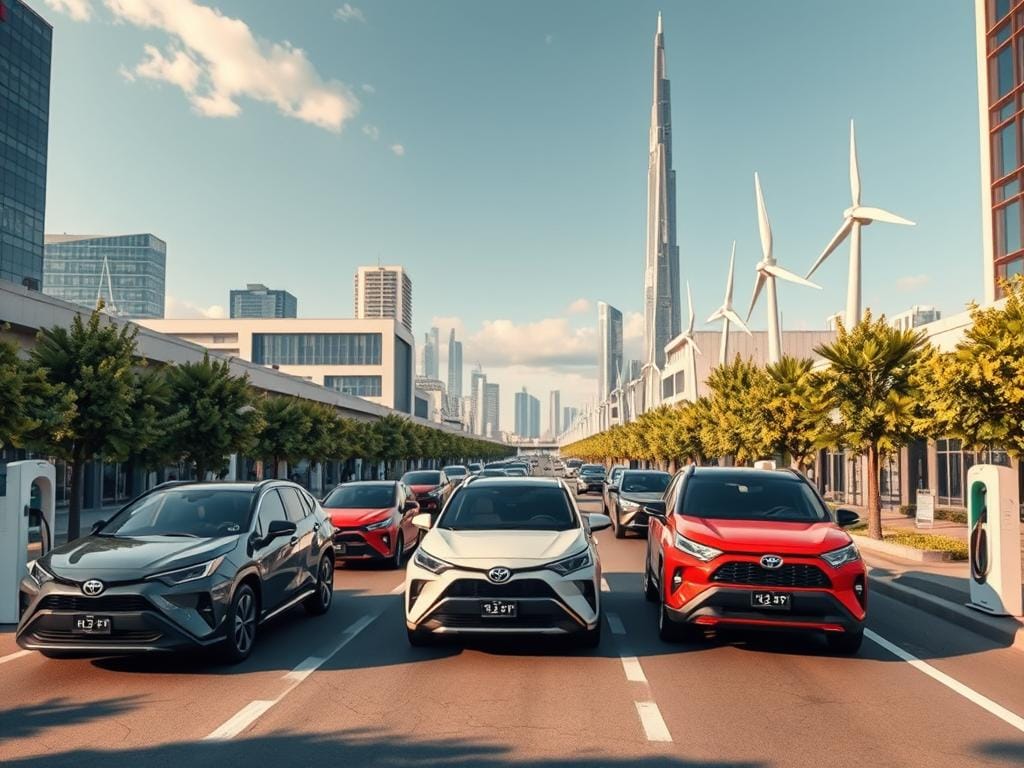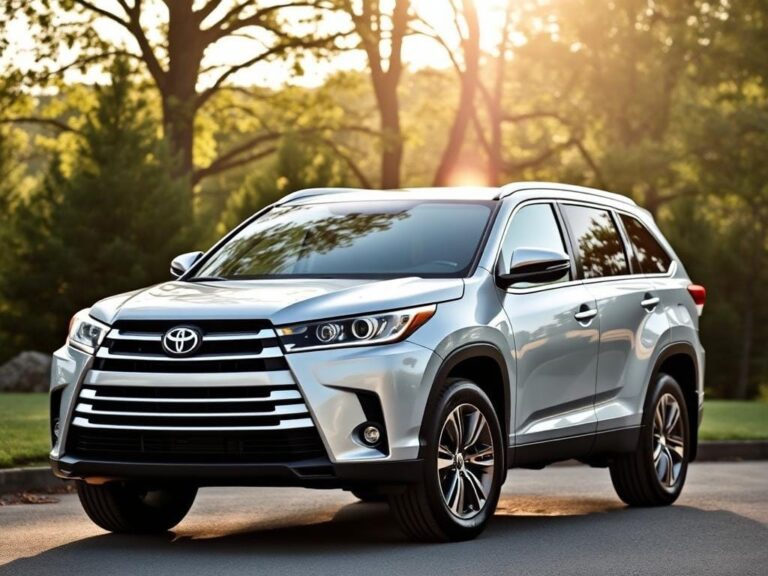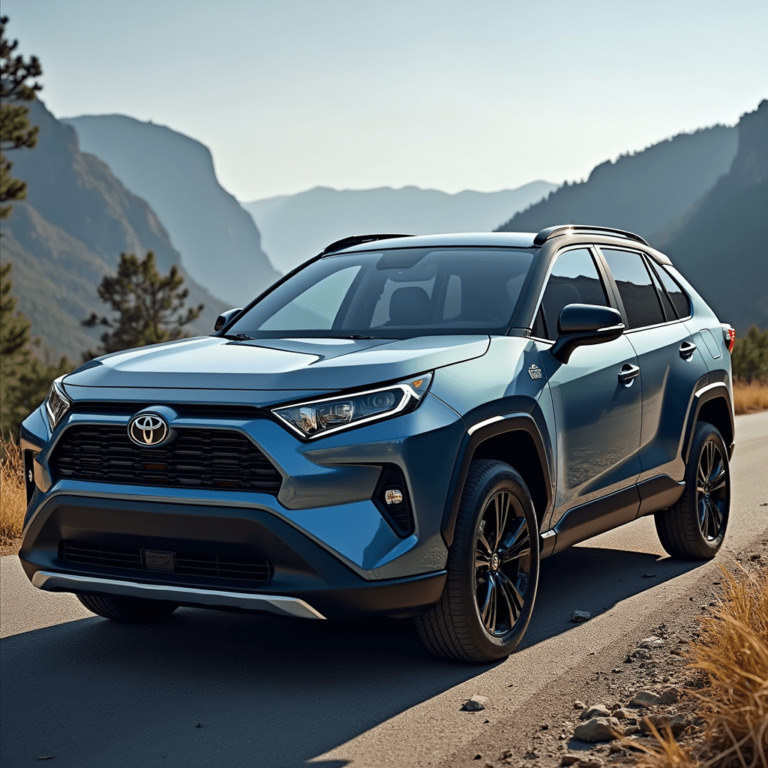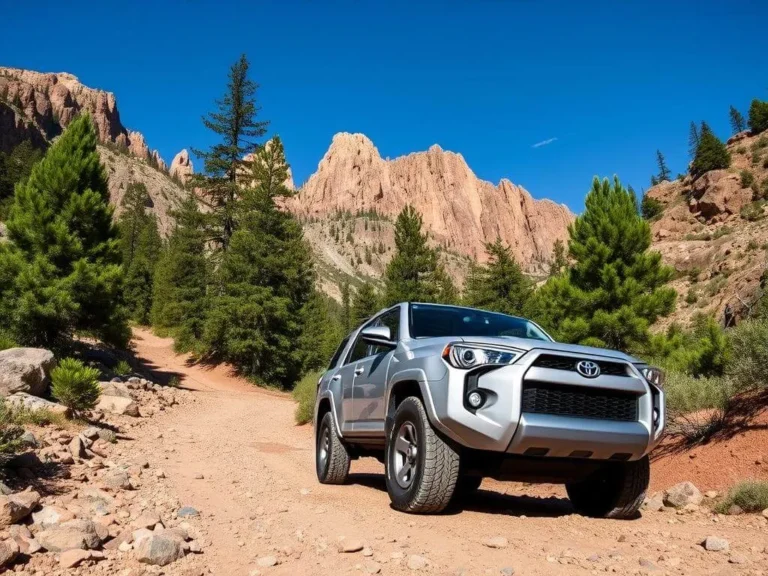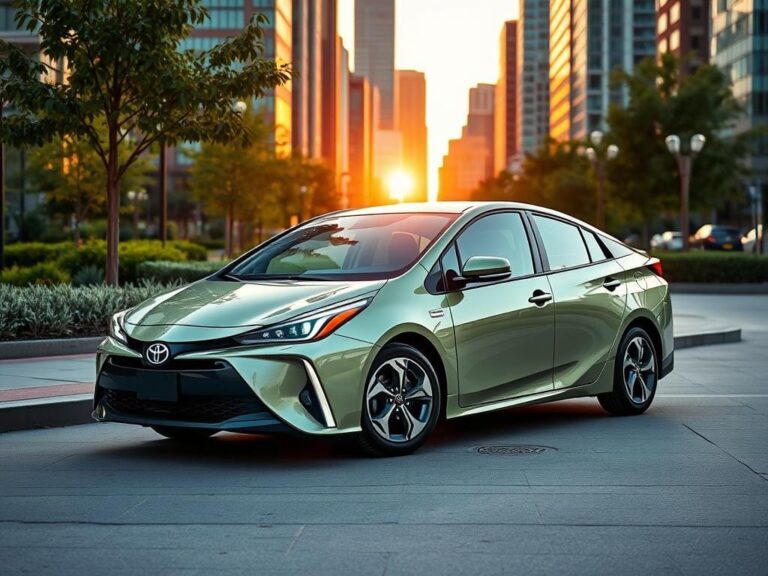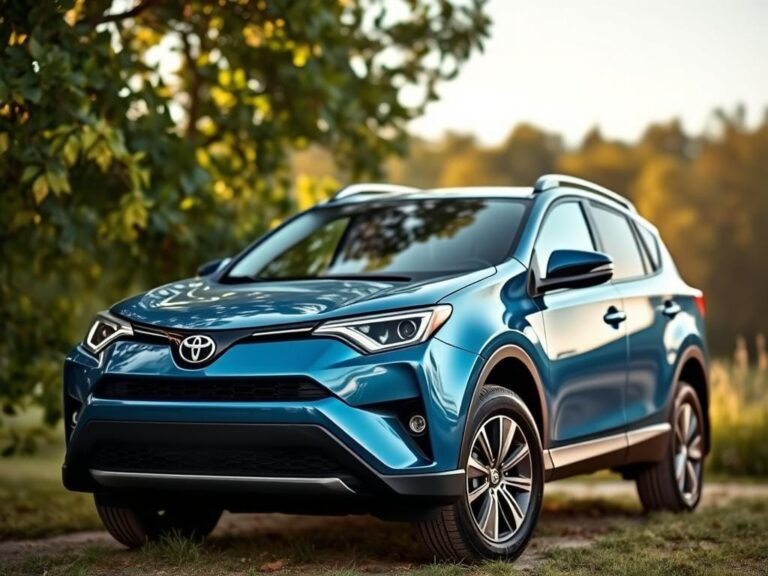Toyota Hybrid or Electric: What to Choose in 2025?
Have you thought about whether a Toyota hybrid or electric car is better for you in 2025? The car market is changing, and knowing the differences between hybrids and electric cars is key. Your choice can make your drive better and help the planet.
Hybrid cars are getting more popular, with Toyota hybrid sales up 65% in a year. Knowing about fuel efficiency, how they affect the environment, and their performance can help you choose the right one for you.
Table of Contents
Understanding the Basics of Toyota Hybrid and Electric Vehicles
Exploring Toyota hybrid and electric vehicles starts with knowing the basics. Toyota hybrids mix gasoline engines with electric motors for better performance and fuel use. They also have regenerative braking, which recharges batteries while driving.
Toyota electric vehicles run only on electric power. They need charging stations and don’t use gasoline. This makes them a great choice for those wanting to cut down on environmental impact.
The 2025 Toyota Prius Plug-in Hybrid is a great example. It has a combined power of 220 system net horsepower. It also gets up to 52 miles per gallon combined and can go up to 44 miles on electric alone.
The Toyota bZ4X electric vehicle is another standout. It has up to 201 horsepower in front-wheel-drive models. It can go up to 252 miles on a single charge. Charging to 80% in about 30 minutes is also possible.
Knowing the differences between hybrids and electric vehicles helps you choose wisely. It’s key to making the right decision for your next car.
Current Trends in the Automotive Market for 2025
The automotive market is changing fast, with more people wanting hybrid cars. By 2025, one in four cars sold will be hybrids or electric. This is a big jump, especially after hybrid sales rose by 75% in 2024.
Electric cars are also growing, but slowly. Sales of electric cars are expected to hit 10% of all car sales in 2025. However, only 5% of U.S. buyers plan to get an electric car next. This shows hybrids are still a popular choice.
The cost of lithium-ion battery packs is also important. In November 2023, their price fell to $139/kWh. Experts think prices will drop to about $80/kWh by 2026. This could make electric cars more appealing to buyers.
Charging infrastructure is key for electric cars. Most EV owners charge at home. This makes hybrids, which can use both electric and gas, a good option for many.
In short, hybrids are becoming more popular in the car market. When choosing a car in 2025, knowing these trends can help you decide between a Toyota hybrid or electric model.
Choosing Between Toyota Hybrid or Electric: Key Factors
When picking between a Toyota hybrid or electric car, several things matter. Knowing the differences helps match your choice to your needs. The cost is key, including the initial price and upkeep costs. Hybrids cut down on fuel costs and emissions by using both gas and electric.
Hybrids like the Prius and RAV4 Hybrid are efficient without needing to charge. This makes them a top choice for many.
Think about how convenient each option is. Hybrids don’t need charging stations, a big plus over electric cars. But, plug-in hybrids offer the best of both worlds. They have longer electric-only ranges, perfect for those who want flexibility.
Your daily driving habits also play a big part. If you drive short distances, an electric car might be better. But, for longer trips, a hybrid’s consistent range is more reliable. Electric cars are great for the environment, producing no emissions. They also need less maintenance, which is a big plus for many buyers.
Here’s a table to help you decide:
| Factor | Toyota Hybrid | Toyota Electric |
|---|---|---|
| Fuel Costs | Lower fuel costs; combines gas and electric | No fuel costs; operates solely on electricity |
| Charging Requirement | No charging required | Charging necessary |
| Maintenance | Higher than BEV, lower than ICE vehicles | Lower; fewer moving parts |
| Emissions | Reduced emissions | Zero exhaust emissions |
| Typical Range | Varies; generally more than 500 miles | Varies; typically 200-350 miles |
Think about what’s most important to you: reliability, environmental impact, or convenience. By considering these, you can choose the right Toyota hybrid or electric car for you.
The Advantages of Toyota Hybrid Technology
Toyota hybrid technology is known for its many benefits. It’s a top pick for drivers because of its reliability and fuel efficiency. Hybrids use both an engine and an electric motor, making them more efficient than regular cars.
Proven Reliability of Toyota Hybrids
Toyota is famous for making reliable cars, especially hybrids. They started making hybrids in 1997 with the Prius. This experience has led to hybrids that last long and work well.
Their hybrids come with a long warranty on hybrid parts. This warranty can last up to 10 years or 150,000 miles. This makes Toyota hybrids a safe choice, with 70% of owners being happy with their purchase.
Fuel Efficiency of Toyota Hybrid Car Models
Toyota hybrids are also great because they save a lot of fuel. They can use up to 40% less fuel than non-hybrid cars, especially in the city. For example, the Toyota Camry Hybrid gets up to 53 MPG, and the Highlander Hybrid gets 36 MPG.
This means you can save money on gas. The Hybrid Synergy Drive system makes sure the car runs efficiently in different situations.
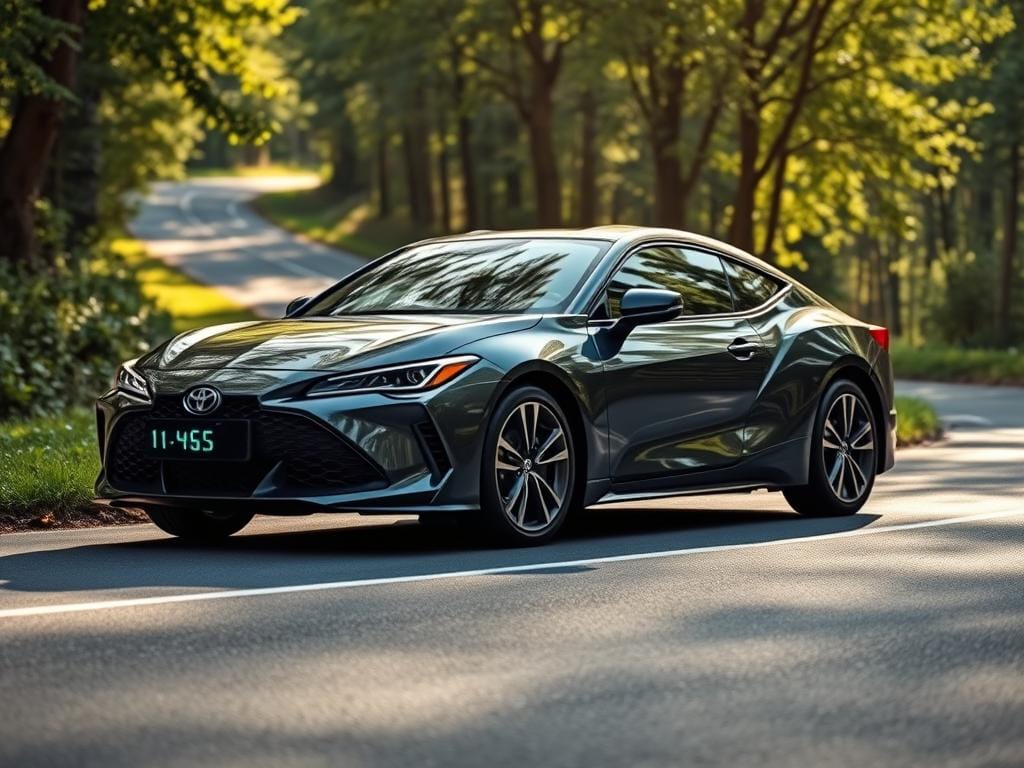
Regenerative braking systems also help save fuel. They capture energy when you brake, making your drive longer and your brakes last longer. Overall, Toyota hybrids are a smart choice for those who care about the environment and want to save on gas.
Exploring Toyota Electric Vehicles: Benefits and Considerations
Toyota electric vehicles are gaining popularity. They appeal to those who love technology and care about the environment. The lineup includes top models known for their efficiency and performance.
The Toyota bZ4X has an electric range of up to 505 km. The Toyota Mirai can go around 650 km on a single charge. These ranges make them great options for long trips.
Buying an electric vehicle might cost more upfront. But, tax credits can help lower the cost. In Canada, you could get up to a $5,000 rebate through programs like iZEV.
Charging your car is getting easier. Home chargers can fully charge your car overnight. Fast chargers can give you 80% charge in just 30 minutes.
Maintenance for electric vehicles is often cheaper. They have fewer parts than gas cars. Toyota also offers an 8-year/160,000 km warranty on hybrid parts, including batteries.
However, there are challenges like range anxiety and finding charging spots. Driving habits and weather can also affect how far you can go. But, the benefits of owning an electric vehicle are clear, making them a good choice for many.
| Feature | Toyota bZ4X | Toyota Mirai | Plug-In Hybrid Vehicles |
|---|---|---|---|
| Electric Range | Up to 505 km | Around 650 km | Approximately 33-60 miles |
| Charging Time (Level 2) | 6 to 12 hours | 6 to 12 hours | Standard wall outlet or Level 2 available |
| Maintenance Costs | Lower | Lower | Similar |
| Government Incentives | Up to $5,000 rebate | Tax credits available | Federal and State credits possible |
Best Toyota Hybrids: Top Models for 2025
Looking at the best Toyota hybrids for 2025, two models really stand out. The 2025 Toyota RAV4 Hybrid and the 2025 Toyota Camry Hybrid are top picks. They show Toyota’s commitment to innovation, fuel efficiency, and safety. Knowing what these models offer can help you choose your next car wisely.
2025 Toyota RAV4 Hybrid: Features and Innovations
The 2025 Toyota RAV4 Hybrid is a mix of practicality and efficiency. It comes with the latest tech, making it a leader among Toyota hybrids. It’s safe, fuel-efficient, and has plenty of room for cargo, great for city trips or outdoor adventures.
- Fuel efficiency: Up to 41 MPG
- Cargo capacity ideal for adventures
- Advanced safety features for enhanced protection
- Regenerative braking technology for improved battery life
2025 Toyota Camry Hybrid: A Comprehensive Review
The 2025 Toyota Camry Hybrid is known for its performance and reliability. It has a strong engine that balances power and fuel use. This model is a top choice among Toyota hybrids, offering a great driving experience and safety.
- Estimated fuel economy: 42 mpg city, 41 mpg highway
- Powerful hybrid engine for improved performance
- Sturdy design prioritizing driver safety
- Premium technology features for added convenience
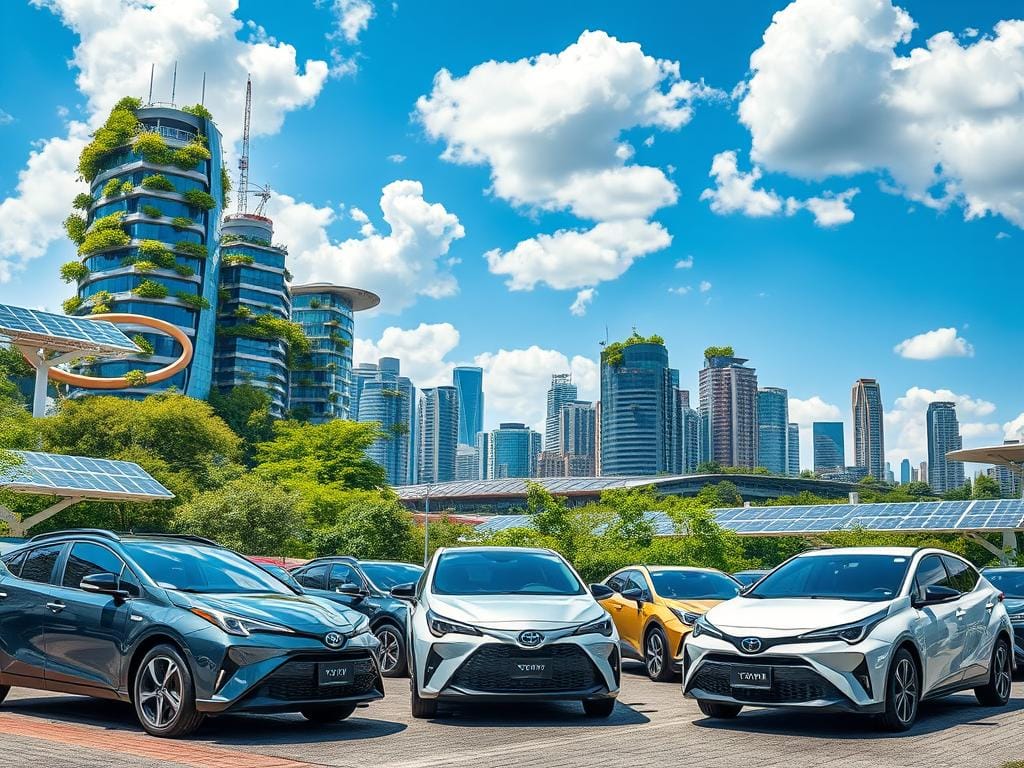
| Model | Fuel Economy (MPG) | Power Output | All-Electric Driving Range |
|---|---|---|---|
| 2025 Toyota RAV4 Hybrid | 41 | 302 hp | – |
| 2025 Toyota Camry Hybrid | 42 city / 41 highway | – | – |
Affordability: Budget-Friendly Toyota Hybrid Options
Toyota’s hybrid lineup offers many affordable options. The 2025 Toyota Crown hybrid starts at $41,440. This shows Toyota’s commitment to making hybrids accessible for all.
With over 15 hybrid models, there’s a car for everyone. Toyota hybrids are known for their fuel efficiency. For example, the Toyota RAV4 Prime gets up to 94 MPGe combined.
Hybrid vehicles use regenerative braking to charge batteries. This means you don’t need to plug them in often. Toyota is leading the way in sustainable vehicles, with more options than any other brand.
By mid-2023, hybrids made up 37% of Toyota’s U.S. sales. This is a big jump from 9% in 2018. The 2025 Camry will only have hybrid options, showing Toyota’s dedication to this technology.
The Highlander Hybrid offers space for 8 and lots of cargo room. It’s a practical choice that still benefits from hybrid technology. Toyota’s designs ensure you get both efficiency and practicality.
| Model | Starting MSRP | Fuel Economy (MPG) | Seating Capacity |
|---|---|---|---|
| Toyota Crown Hybrid | $41,440 | 42 City / 41 Highway | 5 |
| Toyota RAV4 Prime | $39,800 | 94 MPGe | 5 |
| Toyota Highlander Hybrid | $40,600 | 36 City / 35 Highway | 8 |
| Toyota Sienna Hybrid | $36,800 | 36 City / 36 Highway | 8 |
In summary, Toyota hybrids are affordable and reliable. They offer savings and sustainability. Toyota’s approach to hybrid technology makes these cars a smart choice.
Toyota Hybrid vs Electric: Making the Right Decision
Choosing between a Toyota hybrid and an electric vehicle depends on your personal preferences and lifestyle. Both options have their own benefits that can change how you drive. It’s important to know the main differences.
In the decision between hybrid and electric, cost, range, and convenience are key. Hybrids usually get better MPG than regular cars, which is great for daily drives. They can go further even when the battery is low because they have a gasoline engine.
Electric vehicles are very efficient in energy use, allowing more miles per charge. They’re best for city driving or short trips. Hybrids are easy to fill up at gas stations, but electric cars take hours to charge, especially without nearby charging spots.
Cost is another factor in the Toyota hybrid vs electric debate. Hybrids might cost less upfront, but electric cars can save money in the long run. Electric models also get government incentives, which can lower the initial cost.
Both types of vehicles are good for the environment, but in different ways. Electric cars don’t produce direct emissions, while hybrids are better than regular cars. The environmental impact of electric cars depends on the local energy mix.
Looking at specific vehicle types can help you decide. Standard hybrids use both an engine and electric motor for better efficiency. Plug-in hybrids have bigger batteries for longer electric-only drives.
| Feature | Toyota Hybrid | Toyota Electric Vehicle |
|---|---|---|
| Fuel Efficiency | Higher MPG ratings than gasoline vehicles | Very high energy efficiency, longer distances per unit |
| Range | Longer range using gasoline engine | Limited range due to battery capacity |
| Refueling/Charging Time | Quick fill-up at gas stations | Charging takes several hours |
| Cost | Lower upfront costs | Potential long-term savings, incentives available |
| Environmental Impact | Lower emissions than gas vehicles | Zero direct emissions |
Your driving habits will greatly influence the decision between hybrid and electric models. Think about your daily driving, charging options, and budget. Each type of vehicle has unique benefits that can match your lifestyle and values.
Conclusion
Thinking about the future of driving and your car options for 2025? Choosing between a Toyota hybrid or electric is key. Each has its own benefits, fitting different lifestyles and driving habits. Toyota’s hybrids, like the 2025 Prius Hybrid, offer great fuel economy of 4.4 L/100 km.
Knowing the latest in car trends and the pros and cons of each type helps you decide. Electric cars are becoming more popular worldwide. But, Toyota hybrids are a solid choice for those who value ease and dependability. Toyota also offers a long warranty for hybrid parts, giving you peace of mind.
In short, picking a Toyota hybrid or electric car will shape your driving experience and the environment. With the right knowledge, you can choose the best car for you. This will help you navigate the changing car world.

